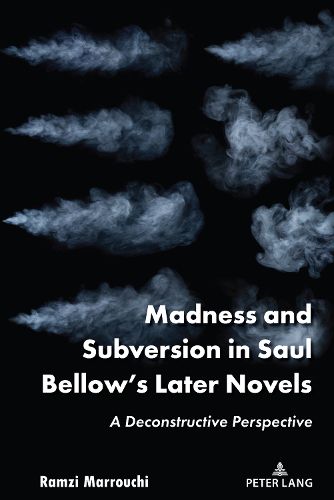Readings Newsletter
Become a Readings Member to make your shopping experience even easier.
Sign in or sign up for free!
You’re not far away from qualifying for FREE standard shipping within Australia
You’ve qualified for FREE standard shipping within Australia
The cart is loading…






This title is printed to order. This book may have been self-published. If so, we cannot guarantee the quality of the content. In the main most books will have gone through the editing process however some may not. We therefore suggest that you be aware of this before ordering this book. If in doubt check either the author or publisher’s details as we are unable to accept any returns unless they are faulty. Please contact us if you have any questions.
Saul Bellow emphasized to a remarkable degree that the protagonists in his later novels were intellectuals trained in the humanistic traditions of European liberal education. He supposed that these protagonists would lead modern American society and predict its future. However, they were ostracized from the intellectual center of modern America, marginalized and rejected by the ethics of capitalism, and therefore denied any significant moral or ethical role. Bellow addressed this gap and acknowledged that deconstructing the negativity of capitalism helped solve this intellectual and moral decay in America.
Madness and Subversion in Saul Bellow's Later Novels examines how and why intellectuals were regarded in European humanistic tradition as wise heroes who sought to deconstruct the norms of their society, which was dominated by low culture. It goes on to explain the unravelling of the Bellovian paradigm, unrealizable in a society where democracy and capitalism were the dominant ideologies. Author Ramzi Marrouchi uses a combination of Derrida's premises on deconstructionism, Foucault's conception of "episteme", and de Man's view on blindness and insight to explain the social and historical fracture from which Bellow's intellectuals suffered. This book is the first to investigate Bellow's later novels from a deconstructionist perspective. It will be appeal to all scholars and students interested in Bellow's creations, and in the intellectual and literary history of twentieth-century America.
The book, like its author, is innovative, clear, and able to open pathways to new ideas.
-Dr. Wael Mustafa, Fayoum University, Cairo, Egypt, Associate Professor of Literary Theory and Criticism
Hilariously entertaining and thoroughly written.
-Dr. Shaimaa El-Ateek, Imam University, Riyadh, KSA Associate Professor of
Literary Theory and Criticism
$9.00 standard shipping within Australia
FREE standard shipping within Australia for orders over $100.00
Express & International shipping calculated at checkout
This title is printed to order. This book may have been self-published. If so, we cannot guarantee the quality of the content. In the main most books will have gone through the editing process however some may not. We therefore suggest that you be aware of this before ordering this book. If in doubt check either the author or publisher’s details as we are unable to accept any returns unless they are faulty. Please contact us if you have any questions.
Saul Bellow emphasized to a remarkable degree that the protagonists in his later novels were intellectuals trained in the humanistic traditions of European liberal education. He supposed that these protagonists would lead modern American society and predict its future. However, they were ostracized from the intellectual center of modern America, marginalized and rejected by the ethics of capitalism, and therefore denied any significant moral or ethical role. Bellow addressed this gap and acknowledged that deconstructing the negativity of capitalism helped solve this intellectual and moral decay in America.
Madness and Subversion in Saul Bellow's Later Novels examines how and why intellectuals were regarded in European humanistic tradition as wise heroes who sought to deconstruct the norms of their society, which was dominated by low culture. It goes on to explain the unravelling of the Bellovian paradigm, unrealizable in a society where democracy and capitalism were the dominant ideologies. Author Ramzi Marrouchi uses a combination of Derrida's premises on deconstructionism, Foucault's conception of "episteme", and de Man's view on blindness and insight to explain the social and historical fracture from which Bellow's intellectuals suffered. This book is the first to investigate Bellow's later novels from a deconstructionist perspective. It will be appeal to all scholars and students interested in Bellow's creations, and in the intellectual and literary history of twentieth-century America.
The book, like its author, is innovative, clear, and able to open pathways to new ideas.
-Dr. Wael Mustafa, Fayoum University, Cairo, Egypt, Associate Professor of Literary Theory and Criticism
Hilariously entertaining and thoroughly written.
-Dr. Shaimaa El-Ateek, Imam University, Riyadh, KSA Associate Professor of
Literary Theory and Criticism